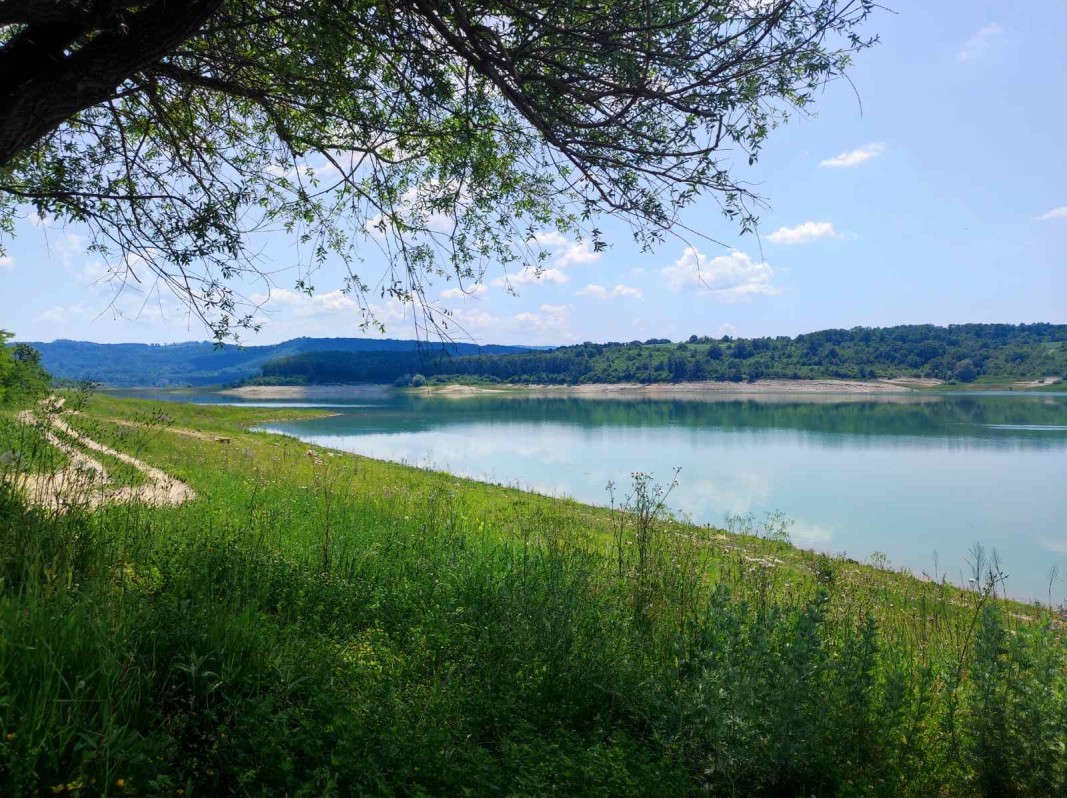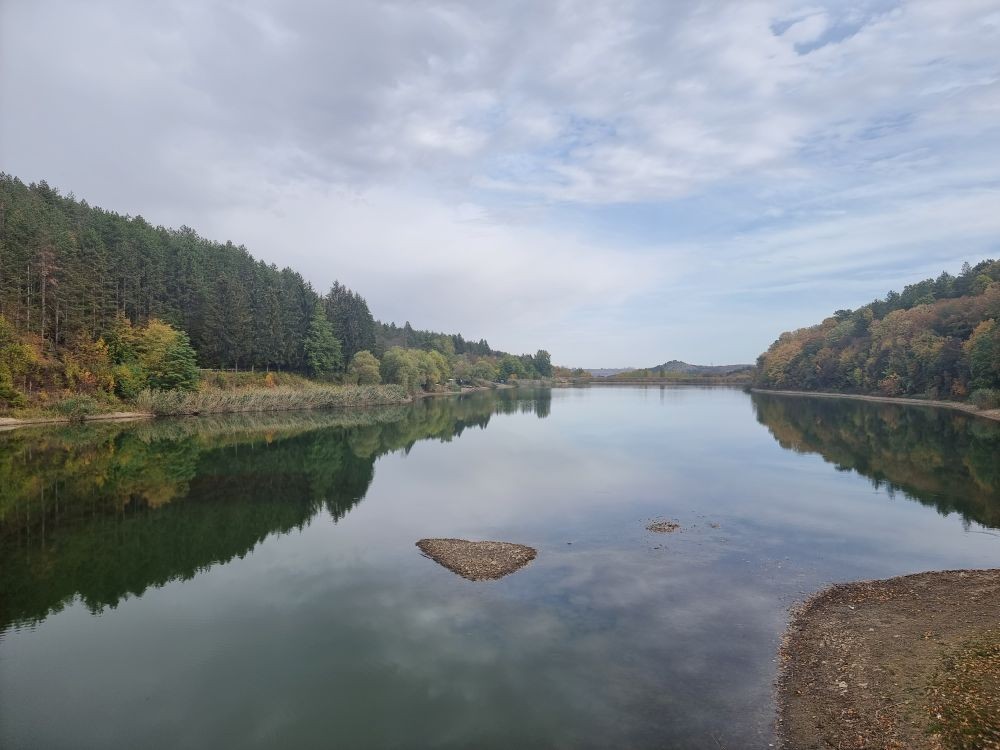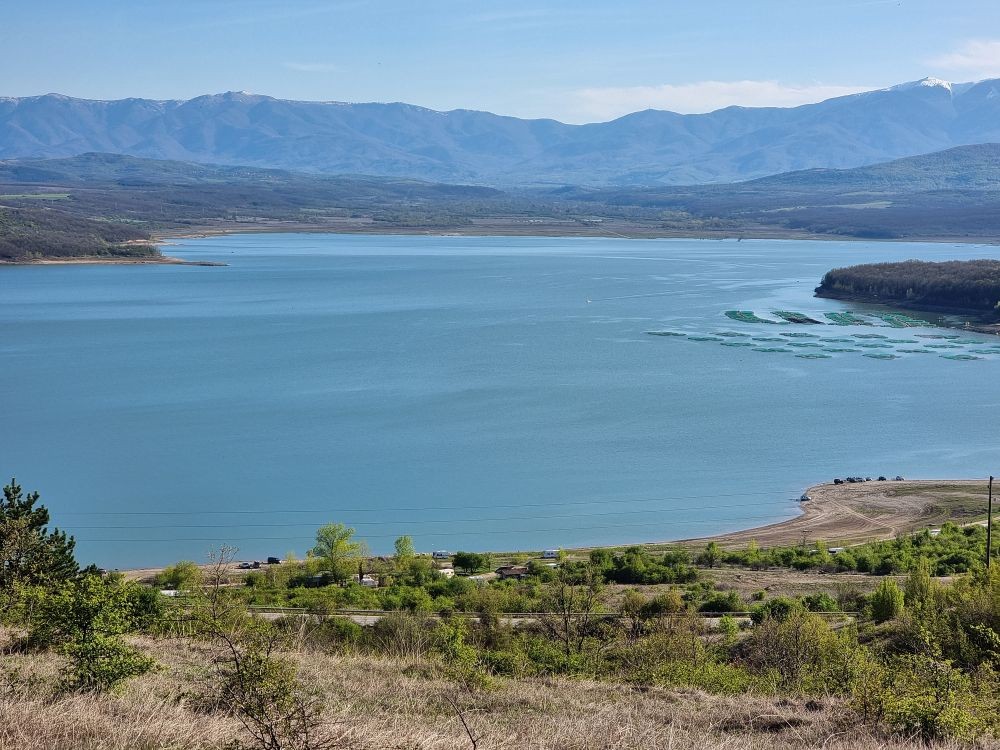As we approach the height of summer and temperatures soar, access to water becomes essential. We remember the hardships of summer 2024, when hundreds of towns and villages across Bulgaria experienced a complete or partial lack of running water. The crisis forced many residents to stay up at night filling containers with the muddy water trickling from their taps. With the heatwave looming and rainfall decreasing, the question arises again: will we experience water shortages once more?
However, there is no expectation of a repeat of the 2024 water crisis, as the large drinking water reservoirs are fairly full. Prof. Georgi Rachev, a climatologist and lecturer at Sofia University, stated this in an interview with Radio Bulgaria.
He categorically confirmed that there is enough water, but criticised the state's management of water resources, which he said was wasteful and aimed at satisfying private interests.

"Bulgaria doesn’t suffer from water scarcity — it suffers from negligence. If you ask the Ministry of Environment and Water, they’ll tell you that only 200,000 people are under a temporary water supply regime. However, according to their mayors, 425 settlements across 105 municipalities have officially declared water restrictions since last August, when the drought situation was at its worst. This is a very serious issue. Non-governmental organisations estimate that half a million people are deprived of water, either permanently or temporarily. There is around 16–17 billion cubic metres of water available, the question is how is it distributed."
Currently, there is no danger of a water crisis as the drinking water reservoirs are in relatively good condition, according to the expert. But what is the underlying cause of the problem that left hundreds of thousands of people without water last year?

"The state released massive amounts of water through small, private hydroelectric plants. We call these 'trickle thieves'. Last year, large volumes of water from our reservoirs, intended primarily for irrigation, were released to generate a certain percentage of green energy to report to the EU. This happened in May, which was a rainy month with twice the average precipitation. Just think about what this means, follow the money — where it comes from and where it goes — and everything will become clear."
Prof. Rachev reassures us that there is no risk of a water crisis along the southern Black Sea coast, where the issue of drinking water reservoirs has been pressing for years — but only on one condition.

‘While the northern Black Sea coast can rely on local sources, the situation with the Yasna Polyana dam, which primarily supplies the southern Black Sea coast, is much clearer. The treatment plant there urgently needs serious repairs. Currently, they are supplying one million cubic metres per month and have a capacity of over 15 million. Even if there is no significant rainfall until December, we will still be able to supply the Black Sea coast, unless forced drainage becomes necessary.’
And how could forced drainage happen without hydroelectric power plants? Through excessive consumption. This includes the growing number of swimming pools springing up at hotels along the coast. Currently, consumption stands at half a cubic metre per second. There’s nothing inherently wrong with this, but the water must be used sparingly and properly paid for.

Unregulated water use, often referred to as 'illegal water hookups', is a serious problem. Claims that 80% of water is lost along pipelines are absurd — such losses would imply the existence of underground rivers or large caves along the pipeline routes. In reality, this ‘loss’ hides the unauthorised use of drinking water for various purposes, such as industrial needs, irrigation, animal husbandry or even illegal, water-intensive production, all at subsidised state prices,” the climatologist explained.
He illustrated the issue with an example: after the modernization of the integrated water cycle system in Shumen, water losses actually increased, rising from about 80% to 83% instead of decreasing.

"Such a phenomenon does not exist on a global scale. Rather than decreasing from 80% to the Bulgarian average of 60%, water losses in Shumen suddenly increased to 83%. It’s as if we’re watering the Sahara.”
According to Prof. Georgi Rachev, it is not water scarcity, but indifference that sums up the situation. Meanwhile, the state insists that it is taking the problems seriously.
The topic is still evolving, and Radio Bulgaria will present the executive branch’s position early next week.
‘In my view, the period between Bulgaria’s liberation and 1944 was especially significant because I believe that the country was then on the right developmental path,’ says collector Filip Milanov. ‘That era produced many people of exceptional integrity..
The village of Hotantsa, near the Danube city of Ruse, is hosting the Hotantsa Sarma Festival , a celebration of Bulgaria’s culinary and folk heritage. Organised by the local cultural and community centre ( chitalishte ) Svetlina-1928 , the festival..
He does not accept the definition of "apostle" or "missionary", although for many he is exactly that - a messenger of God in the world, proclaiming His Word. He first became a priest in his native Vidin diocese, in Northwestern..
Forty Bulgarian schools in 22 US states have become a second home for the children of Bulgarian emigrants. They create continuity..
A case of a dog run over by a doctor in a district of Sofia has caused a wave of public indignation and a protest in Sofia, which will..

+359 2 9336 661
